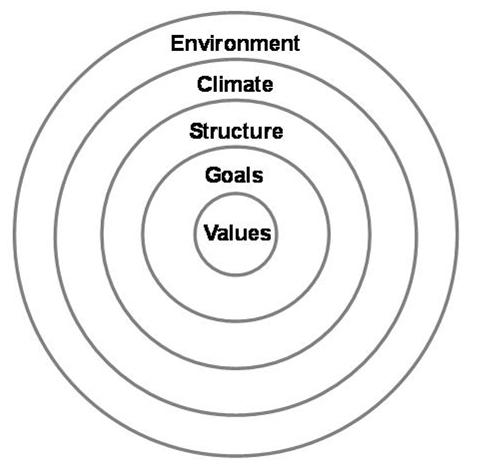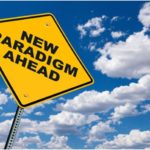The work of Inagrace Dietterich from the Chicago-based Center for Parish Development centers on the call to recover an ecclesiology driven primarily by theological considerations, with a secondary emphasis on the management sciences. The people of God are called, she writes, “to be faithful: to discern, interpret, and proclaim the gospel of Jesus Christ…. And they are also called to be effective: to structure and manage themselves in such a way that they practice efficient stewardship of all available resources (i.e., human, financial, program, and facilities)”
Christian organisations, whether they are voluntary non-profit bodies like Churches or Para-Churches, are invisible learning societies that bring together both the proclamation of the gospel of Jesus Christ and management sciences to achieve their purpose.
The following simple exercise assists the organisation to assess the extent to which they are a learning society that is not creating a dualistic outcome.
Exercise One: A Learning Organisation
Q1. To what extent is your organisation gaining new understanding and skills that lead to faithfulness and effectiveness?
 Q2. Who are regarded as the best thinkers and mentors in these areas? Identify and name them.
Q2. Who are regarded as the best thinkers and mentors in these areas? Identify and name them.
_____________________________________________________________
_____________________________________________________________
_____________________________________________________________
_____________________________________________________________
Q3. How are you using these thinkers and mentors?
Q4. Describe the last example of your organisation’s conducting a significant learning event?
What were some significant outcomes?
Q5. What are the consequences of being/not being a “learning organization”?
The following diagram, often referred to as ‘’The Organisational Universe’ summarises the various learning levels within an organisation.
The Organisation Universe
Values: These are the core values and beliefs (stated or implicit) upon which the organisation bases its decisions. This refers to the organisation’s very reason for its existence – its purpose or philosophy.
Goals: These are articulated values. Goals are usually the quantified strategies presented for implementation. Theycan be formalised or assumed because of the values.
Structure: This is the framework which is designed to outwork the values and goals. They include the reporting relationships, the communication patterns, decision-making procedures and accountability systems. These structures go beyond the formal organisational chart.
Climate: This is the tone or atmosphere of the organisation. Personality is to the individual as climate is to the organisation. Climate includes issues of morale, openness, support and autonomy.
Environmental: This refers to the global context which may include various interest groups such as members, staff, possible new members/staff, government regulatory agencies, other organisations and the wider community.
The following exercise translates these five layers of an organisation into five clusters of questions, useful for leadership team decision-making
Exercise Two: Exploring Your Organisation
Q1. How does your organisation officially and unofficially describe its purpose (in written promotional material and day-to-day contact with the environment)? What appears to be the fundamental values expressed by leadership? How congruent is their actual practice with what is conveyed publicly? (Values)
Q2. What agreed, specific measurable goals exist in your organisation? How well are these communicated to those who must implement them? What input did the implementers have in setting goals and priorities? (Goals)
Q3. How well does the formal and informal structure combine your organisation’s key functions and skills? What structural constraints exist? What existing structures can be improved or new structural elements implemented to enhance the organisation’s outcomes? (Structures)
Q4. How sound and healthy is your organisation? How much autonomy do people have in doing their roles? What extrinsic and intrinsic recognition exist? Do staff/members provide each other with appropriate consideration, warmth and support? (Climate)
Q5. What opportunities and threats to your organisation exist in the environment? What is their source? How can your organisation better access and respond to these opportunities and threats? (Environment)

Colin is the Director of ResourceZone International. He has 30 years of ministry experience as a pastor, college lecturer and consultant/coach to consultants, denominational leaders and local church pastors. He can be reached at info@resourcezoneinternational.com
Related Resources/
- Goals & Objectives Skill Builder Booklet – Ministry Specific Resource (PDF)
- Goal Setting Effectiveness Profile – Ministry Specific Resource (PDF)
- Problem Solving Skill Builder Booklet – Ministry Specific Resource (PDF)
- Problem Solving & Decision Making Profile – Ministry Specific Resource (PDF)
- Organisation Culture (PDF)





Comment here